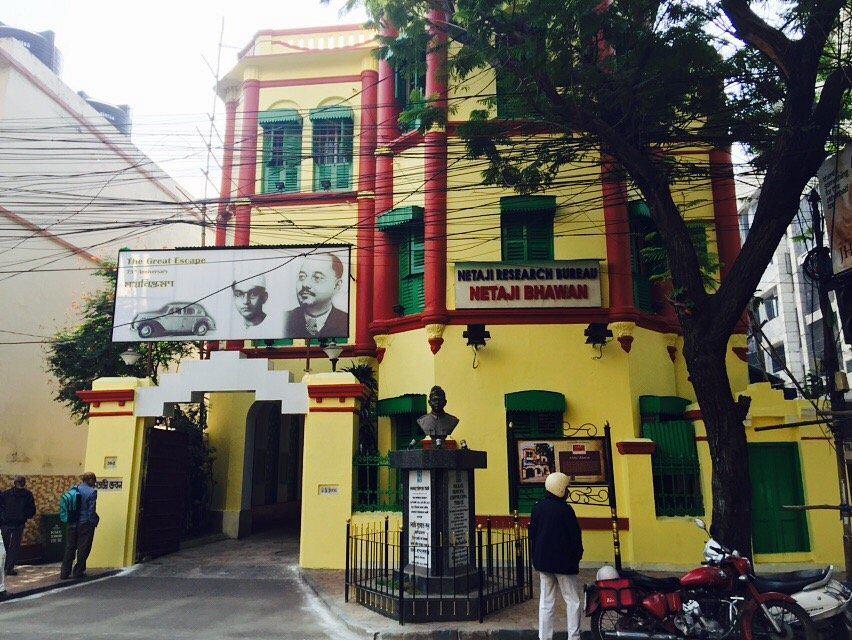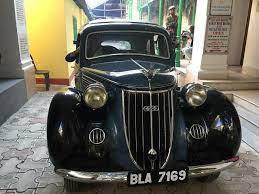Prince among Patriots!
Every year on or about 23rd January there is a deluge of articles, quotes and stories on Netaji Subhash Bose.

In my hometown, the district administration goes into a frenzy, as one of the tallest patriots of our freedom struggle was born here in Cuttack, India on January 23, 1897. The newly christened ‘Parakram Diwas’ is in the middle of a political tussle, between major political parties, over the rights of honouring and appropriation.
Subhash Bose was an Indian revolutionary prominent in the Independence movement against British rule of/in India. Bose was a man of action who thought for himself and was a unifying, genuinely secular leader for the men and women who enthusiastically followed him. He led an Indian national force from abroad against the Western powers during World War II.
Bose was known in particular for his militant approach to independence and socialist politics. He was an ally of Mohandas K. Gandhi initially, but, later on, their political differences came out in the open.
I have always been curious about Subhas Chandra Bose’s fiery and dynamic persona, his enigmatic life, disappearance and death which has taken on a quasi-mythological aura.
Janakinath Bhawan, the ancestral house of Netaji Subhas Chandra Bose, is located at Oriya Bazar in Cuttack city of Orissa.
Subhas Bose was born in this house on 23.1. 1897 and spent his early childhood at Cuttack. He lived in this house with a large family of eight brothers and six sisters. It has now been converted into a museum with memorabilia from his childhood and also from the Azad Hind days.

Interesting collections in the Museum include 22 original letters written by Netaji from Geneva, Milan in Italy, Mandalay Jail, Rangoon Jail in Myanmar, Presidency Jail, Alipore New Central Jail in Calcutta and Berlin to his parents and family members.
Subhas Bose passed the entrance examination from Ravenshaw Collegiate School in 1913 and thereafter the family moved to Kolkata where he stayed in his father's house at Elgin Road for some time. This has since been converted to Netaji Bhavan.

The German Wanderer Sedan car in which around 76 years ago,in 1941,Netaji Subhash Chandra Bose executed his revolutionary escapade to Germany has been preserved in a glass enclosure at Netaji Bhavan for public display under the vigilance of Netaji Research Bureau which has been restored by Audi, the german locomotive giant. Audi took several months to finally unveil the new look of the transformed car. Bearing the registration number BLA 7169, the car which was first registered in 1937 in the name of Dr.Sisir Kumar Bose was once again in use when he drove it in 1979 for the shooting of a Japanese documentary.

On a lighter note, I wondered about the food habits of the patriot ( as Bengalis are huge foodies) and whether he indulged in the typical bengali "adda" while studying at Presidency college.
Food plays a large part in defining family roles, rules and traditions.
What we eat and with whom we eat helps in understanding the culture, attitude, habits, rituals, and traditions of the person.
Bengalis love their food and the conversation mostly revolves around food, football and politics. The concept of 'cha and adda' is intrinsic to the Bengali psyche and traditionally, a perfect adda should include a little bit of everything – politics, art, literature, science, endless debate, gossip, jokes, rumors, food, cigarettes and tea.
A little bit of research led me to Laxmi Narayan Shaw And Sons Bidhan Sarani, Shobhabazar which is a thriving typical 'telebheja' corner since 1918 & called Netajir 'chop-er dokan', since it was Subhas Chandra Bose's favourite little shop and he celebrated his birthday twice at this shop.
My father had told me about Swadhin Hindu hotel which was originally called the "Hindu hotel".
A stone's throw away from the busy College Street junction, this Pice hotel was both a hideout and a venue for clandestine meetings of the freedom fighters. The wholesome, homely and affordable bengali food served in these Pice hotels was appreciated by Netaji Subhash Bose and his trusted followers, who were regular customers, as the hotel upfront was a ruse and the inside room had a back exit that led to a secret passageway outside.
Netaji in his college days was expelled from Presidency College for protesting against the anti-India remarks of Professor Oaten. He then joined Scottish Church College.
Legend has it that Kazi Nazrul Islam used to recite poetry at Favourite cabin near Paramount while a young Subhas Chandra Bose listened to him. The photographs of the two icons still adorn the wall of the shop.
Subhas Bose left India on Sep 15 1919, a few days after the conclusion of World War 1. Along with occupying the fourth position in ICS, he had also obtained Tripos in mental and moral sciences from Cambridge. Subhas Bose returned to India on July 16, 1921. On the same ship, he had Rabindranath Tagore as a co-passenger.
On 16th July, his ship had come to the Mumbai port and on the same day he met Gandhiji. In February 1920 he started corresponding with Chittaranjan Das, the well-known barrister who had stood for Aurobindo Ghosh in the Alipore case in 1908, who became his mentor. His wife
Basanti Devi and Subhas Bose shared a delightful bond and he would often come to the Das household late at night and his demand to his beloved mother (Basanti Devi) was to cook for him. Even though Basanti Devi would explain that the kitchen was closed, she would finally go and cook a simple "bhate bhat" (a Bengali delicacy of boiled rice and vegetables served with clarified butter or ghee) and Subhas Bose would eat with childlike happiness.

The images we have of Netaji are the ones in his impeccable uniform; statues showing his muscular stance and his rigid pose, his words were strong, and determined; his actions purposeful and daredevil. These make me justifiably proud of a courageous leader and tremendous personality. But, adding to it, filling me with great affection and tender amusement, are these little facets of his personality... the ordinary delights cherished by this extraordinary man.
Comments (30)






























